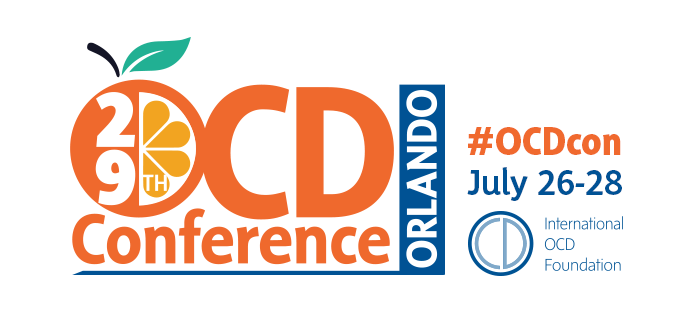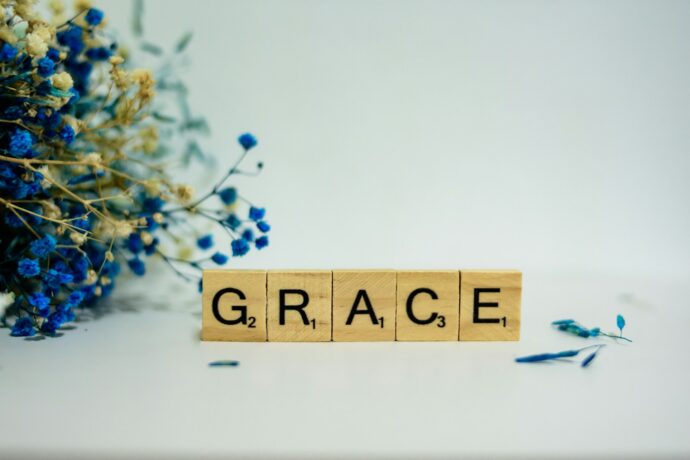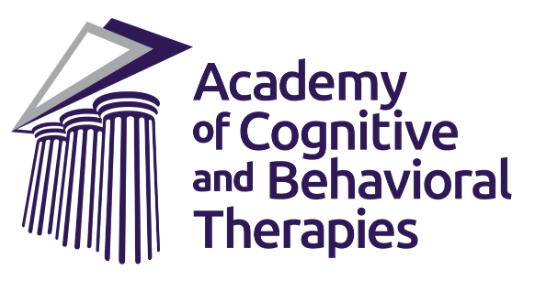
Fred: “So what do I do with my uncertainty?”
Therapist: “Sit with it! You can’t be certain about anything.”
Fred: “Ummmmm….okay, but what does that mean?”
Therapist: “Just do nothing until your values indicate a step to take.”
Fred: “Oh, okay. Thanks, I guess.”
Here lies a vignette of a shared frustration people express to me. However well-intended therapists and advocates are, there are a lot of terms that float around with little explanation. Uncertainty is one of the key offenders. It is time to shed some light on what we’re talking about when we say things like “sit with it,” “tolerate uncertainty,” and “you can never be fully certain.”
Bottom line: we do not know and cannot be certain in the ways we may wish we did. Anxiety disorders and OCD naturally play off moments of felt doubt and uncertainty. We need guidance on how to deal with uncertainty to get out of the mental pit.
Why We Target Uncertainty in Treatment
Others Jeff* talked to seemed so confident about things he doubted. He is intelligent, but boy, he often felt stupid. People told him, “Of course you can be certain!” Well-meaning individuals would clarify their point, sometimes philosophically or personally. He felt frustrated, discouraged, hopeless, and very alone. I had a lot of hope and encouragement to offer.
I provided education (we call it psychoeducation in therapy), and it made complete sense to him that people with high anxiety struggle to tolerate both the feeling of it and the surrounding uncertainty in their experience. It’s at the heart of Generalized Anxiety Disorder, OCD, Panic Disorder, and more. Here are questions from an assessment we use to measure how severe a person’s intolerance of uncertainty is:
|
“1. Unforeseen events upset me greatly. |
|
2. It frustrates me not having all the information I need. |
|
3. Uncertainty keeps me from living a full life. |
|
4. One should always look ahead so as to avoid surprises. |
|
5. A small unforeseen event can spoil everything, even with the best of planning. |
|
6. When it’s time to act, uncertainty paralyses me. |
|
7. When I am uncertain I can’t function very well. |
|
8. I always want to know what the future has in store for me. |
|
9. I can’t stand being taken by surprise. |
|
10. The smallest doubt can stop me from acting. |
|
11. I should be able to organize everything in advance. |
|
12. I must get away from all uncertain situations.” (Carleton et al., 2006) |
Simply put, the more a person requires certainty to adapt or move on, the more they become stuck. This is a pathological (unhealthy) relationship with certainty.
Jeff’s friends went to church and heard the pastor say, “Let us consider if we have any sins to confess.” The average person who cared took 5-15 seconds, prayed, and moved on. Jeff wracked his brain and found lots of examples that almost didn’t stop, and when they did, he obsessed for hours on whether there was something he might have missed. He felt anxious with a sense of uncertainty. He gave into this by continuing “the hunt” to feel sure. But his certainty-seeking is what was the problem—not unconfessed sin.
The opposite of faith is not doubt: It is certainty. It is madness. You can tell you have created God in your own image when it turns out that he or she hates all the same people you do. —Anne Lamott
Aristotle to Aquinas and Beyond—Philosophers Disagree
First, I almost want to apologize for jumping into philosophy. I envision some people falling asleep already. I believe it will be worth it if you can bear with me. One early teaser why: Philosophers have already given us some guidance that will help us be successful. Additionally, people who suffer from anxiety and OCD get stuck on complex thoughts and need understanding and language to meet them where they’re stuck.
Philosophers Aristotle and Aquinas believed scientific evidence was at the heart of being able to claim certainty. To be clear, there are NO SCIENTIFIC PROOFS. There is only scientific evidence. Only Math and Logic have proofs. Science can only test hypotheses.
- Logic: All men are mortal; Socrates is a man; therefore, Socrates is mortal.
- Math: 2+2 = 4.
- Scientific evidence: The earth revolves around the sun.
What is interesting to me about objective certainty (scientific) is that philosophy has shown that skeptical argumentation, by and large, can dismantle the objective certainty of nearly any belief. My kids in the toddler phase have shown me that one. However, even without proven certainty, beliefs can still have worth. Patience is a virtue. Be kind.
Plato, Cicero, Spinoza, Wittgenstein, and Descartes offer various insights. Smart dudes. Those who have dedicated their lives to the study of philosophy differ significantly as to the extent they believe a person can be certain. Some philosophers state knowledge is the same as certainty, yet many distinguish the two.
Three distinctive categories of certainty emerge from philosophy.
3 Types of Certainty
- Epistemic (Stanford, 2023): based on the highest levels of knowing—including justified beliefs, true beliefs, knowledge, and understanding (IEP, 2023). It is also called “objective certainty.”
- There is supposedly no rational ground for doubt with epistemic certainty.
- Psychological: when a person is thoroughly convinced, they are said to be psychologically certain.
- This often accompanies epistemic certainty, but not always. Just because something is arguably true doesn’t mean someone will be or feel convinced. A person may also hold a true belief yet not know how thoroughly true it is.
- Moral: while not all philosophers make such a distinction, it is a certainty suitable to conduct life.
- Descartes says, “Some things are considered as morally certain, that is, as having sufficient certainty for application to ordinary life, even though they may be uncertain in relation to the absolute power of God” (PW 1, pp. 289–90).
- “moral certainty is certainty which is sufficient to regulate our behaviour, or which measures up to the certainty we have on matters relating to the conduct of life which we never normally doubt, though we know that it is possible, absolutely speaking, that they may be false” (PW 1, p. 289 n. 2).
What Kind of Certainty Is and Isn’t Possible?
Let me first say I am not a trained philosopher, but I hope my study helps.
Everyone can be morally certain. Psychological certainty is fleeting and highly dependent on many factors. Epistemic certainty may be possessed for some things (the warmth of summer is due to the proximity of the sun), but certainly not all things (is there a God?), and arguably very few things in our human experience.
For the large numbers in my audience who are people of faith, you might be upset at this latter point, but I want to note that faith is “the conviction of things not seen” (Hebrews 11:1), meaning it is naturally excluded from scientific/epistemic/objective certainty by definition. For me, I believe God is as certain as day. I believe it absolutely as an absolute truth. BUT….according to philosophy, I can only be psychologically and morally certain. (See also Clarity vs. Trust.)
[For an example of uncertainty in mental health, see the footnote** at the end.]
Someone like Jeff can’t stop washing their hands, checking online for reassurance, and asking their doctors if they are sure they don’t have cancer. And that reassurance from others is often given from a different type of certainty:
- Them: No, you don’t have cancer; your labs came back perfectly normal. Uncertainty: But what if?
- Them: No, you won’t get sick from skipping that extra handwash. Uncertainty: How do they know?
- Them: You have everything to live for; I don’t think you’re suicidal. Uncertainty: Isn’t that what others have thought before someone dies by suicide?
It is frustrating that people not suffering often seem so cavalier—and offer conflicting messages— about certainty. This can be invalidating. To make matters worse, even mental health experts can come across as flippant (sorry, I have sometimes).
I validate clients quickly and often. You are bumping up against a reality most people take for granted. OCD and Anxiety love to live in the margins. Uncertainty finds the tiny sliver of possibility and takes the opportunity. If you struggle, I’m sorry. This struggle is worse than the average person’s, and you can’t just turn it off. But here we are. So what are we going to do about it?
It is front and center of my work to guide people in accepting what they can’t change and to take charge of what they can.
A Plan, A (Wo)Man, A Mission
Mary was stuck at home because of the variable sense of “certainty” she felt about the world. She was obsessing about whether she had harmed someone and needed to check first and possibly apologize. If she left her home, what if she harmed someone else? Even if she didn’t, she knew would ruminate for hours regardless. Might as well stay home. Or so she thought. It incapacitated every part of her—mind, body, and spirit. Platitudes didn’t help her much: “You can’t live your life in fear!” “None of us can guarantee whether we’ll get into an accident.” “You can be confident in your driving skills.” “If you’re not confident to drive you shouldn’t ever get behind the wheel.” Her problem was she just couldn’t feel confident about these things no matter her “record” (and for the record: her history with driving and general safety is possibly better than yours or mine—impeccable). It was tremendously helpful for her to understand what she could be sure about—and not.
I told her, “Mary, you may not have the certainty (or confidence) you seek. [See my article, You Don’t Get to Know.] You may never have that in the way you might desire. I’m sorry that it’s not in the cards for you today. But since you do have the ability to decide, what is the choice you will make today?”
She focused on what she could commit to—one step at a time. For her, it was the decision to get out and face fears, stop reassurance-seeking, and stop ruminating—all the while determining what values she wished to attend to. We utilized Exposure and Response Prevention (ERP), Acceptance and Commitment Therapy (ACT), and some general cognitive therapy skills (CT) that help break rumination patterns.
She is free from OCD today, not because of a cure, but because she learned how to change her relationship to uncertainty. “Free” means “subclinical”—it doesn’t affect her day-to-day differently than any other Mary you might meet.
Mary wanted objective (epistemic) certainty—a guarantee if you will—that she would be safe or at least know what to do. She lacked psychological certainty and spun her mental wheels around actions she could take (moral certitude).
Those with higher levels of intolerance of uncertainty seek epistemic certainty when they lack psychological certainty when what they need is moral certainty.
3 Steps for Overcoming Uncertainty
I won’t tell you there’s just one “hack” for something complicated. But you will need these three things to overcome fears shrouded by uncertainty:
- Call it out. Call out your unhealthy responses. Own it.
- Develop a strategy.
- Get consistent and utilize many supports (don’t underestimate how much support a person needs).
Back to my bottom line. We do not and cannot often be certain in the ways we may wish we did. Anxiety disorders and OCD naturally play off of these moments. The language others use to describe this is grossly lacking and often invalidating. We need guidance on how to deal with uncertainty to get out of the mental pits that come from clawing for a change in our mental state. Get around some good people who know what you need—or at least are willing to sit with you in the pain patiently. It will be well worth it.
If a man will begin with certainties, he shall end in doubts, but if he will content to begin with doubts, he shall end in certainties.
—Sir Francis Bacon
*The stories above are composites of several everyday experiences, which allow me to obscure details to maintain anonymity, confidentiality, and privacy. Rest assured, examples are authentic and come up often.
**Let me give an example of epistemic uncertainty in emotional health. What is anger? How do you feel it? Do you sufficiently understand it to be able to recognize it in yourself? What about others? Unless you’re in a spiral of doubt or uncertainty, most people will be able to say, “Yes, I know what it feels like to be angry.” What’s interesting about that is we have no freakin’ epistemic clue as to anger’s existence.We don’t have a mathematical like, or evidence-based equation to properly say anger has no rational grounds for doubting. What if it’s just a word used to describe something we think we know and understand? What if it’s many different emotions all at once? What if it’s only secondary to other emotions. Anger’s pure existence is difficult—maybe impossible—to prove with certainty as a distinct concept (and neuroscience can’t give a specific answer, yet, either). But….and this is a big but….do we have sufficient enough certainty (psychological or moral) to use it as a reference? To identify it and determine what to do with it? Yes, I think so.
For more info:
https://plato.stanford.edu/entries/scientific-objectivity/
https://iep.utm.edu/certainty/#H1
https://www.oxfordbibliographies.com/display/document/obo-9780195396577/obo-9780195396577-0344.xml
https://plato.stanford.edu/entries/certainty/








Leave a Reply